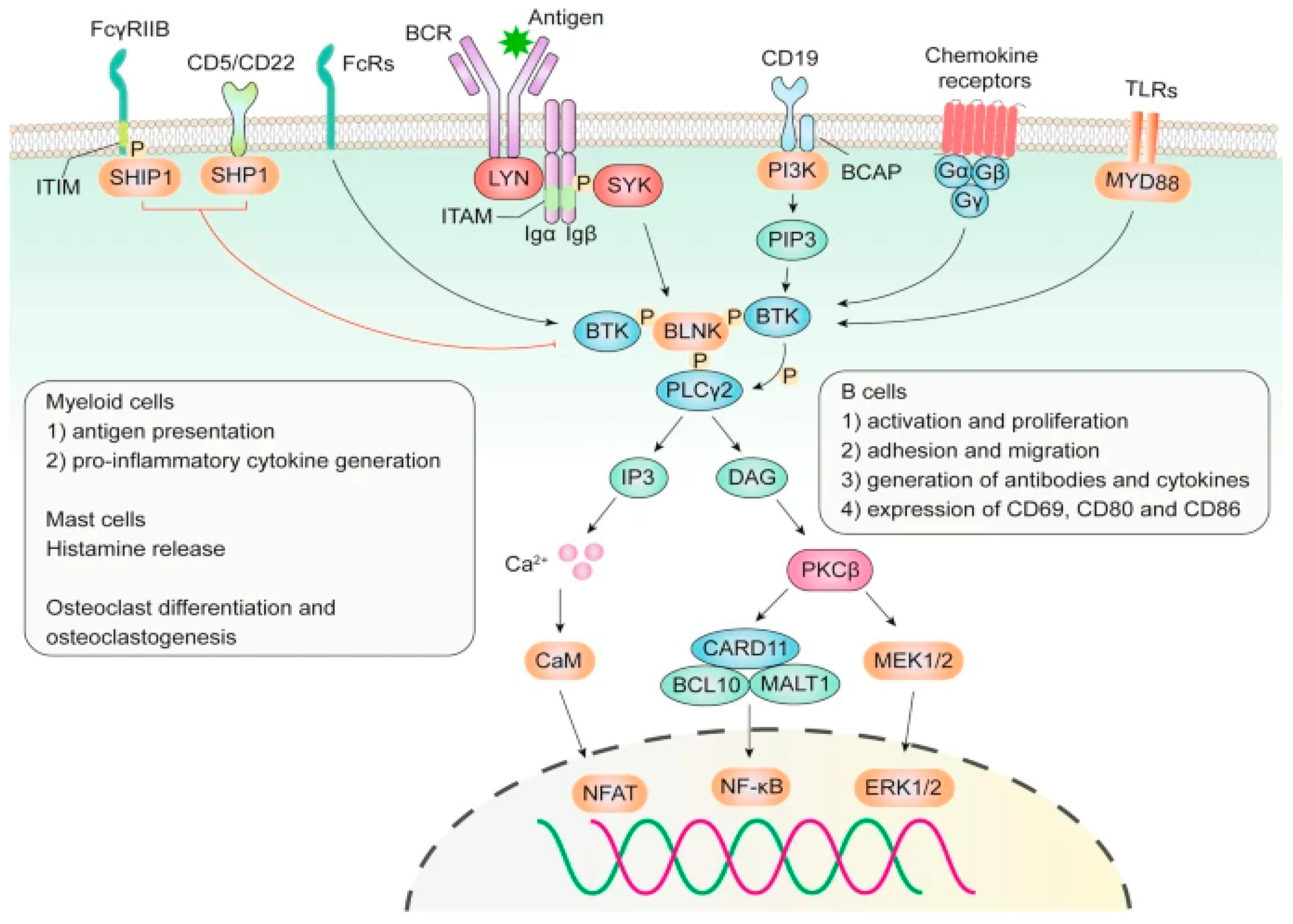Arthritis affects millions of people in the UK, and for many, the pain is more than just an occasional ache. It is a constant, life-changing struggle that limits mobility, reduces independence, and impacts overall quality of life. Traditional treatments such as painkillers and non-steroidal anti-inflammatory drugs can provide relief, but for many patients, these medicines are no longer enough. That is why the search for more advanced therapies has been so important.
In recent years, scientific research has produced new options that go far beyond symptom control. Known as targeted therapies, these modern medicines focus on specific pathways in the immune system that cause inflammation and damage. The most exciting developments are found in three of the newest drugs for arthritis pain: Janus kinase (JAK) inhibitors, Bruton’s tyrosine kinase (BTK) inhibitors, and biologic disease-modifying antirheumatic drugs (biologics). These treatments are reshaping the way doctors and patients think about managing arthritis.
Understanding Arthritis Pain
Arthritis is not a single condition but a term covering over 100 different joint-related disorders. Among the most common are rheumatoid arthritis, osteoarthritis, and psoriatic arthritis. Each condition presents its own challenges, but they all share the same core issue: inflammation that causes swelling, stiffness, and ongoing pain. Over time, untreated arthritis can lead to irreversible joint damage, disability, and a reduced ability to perform daily tasks.
Historically, treatments have focused on easing symptoms rather than addressing the root causes of the disease. Simple pain relief medicines may mask discomfort for a while, but they cannot stop the immune system from attacking the joints. The emergence of three of the newest drugs for arthritis pain changes this picture completely. Instead of merely providing temporary comfort, these drugs are designed to intervene directly in the disease process, slowing or even halting its progression.
Janus Kinase Inhibitors
Janus kinase inhibitors, often shortened to JAK inhibitors, are a type of oral medication that work by targeting specific enzymes within the immune system. These enzymes, called JAKs, play a key role in transmitting signals that trigger inflammation. By blocking these signals, JAK inhibitors reduce the immune system’s overactivity and ease the painful swelling in joints affected by arthritis.
Well-known examples of JAK inhibitors include tofacitinib, baricitinib, and upadacitinib. For patients in the UK, these medicines are already in use under certain NHS guidelines for rheumatoid arthritis that has not responded well to traditional treatments. One of the main advantages of JAK inhibitors is convenience — they are taken as tablets rather than injections, making them easier to incorporate into daily life. However, they do carry risks, including a higher likelihood of infections, meaning regular monitoring is essential for those who take them.
Bruton’s Tyrosine Kinase Inhibitors

Among three of the newest drugs for arthritis pain, Bruton’s tyrosine kinase inhibitors (BTK inhibitors) represent a fascinating new frontier. These drugs target a different enzyme in the immune system called BTK, which plays a role in the activation of B cells. B cells are important immune cells that can mistakenly attack the body’s own tissues in arthritis, causing inflammation and joint damage. By stopping BTK from functioning, these inhibitors aim to calm down the immune system’s harmful responses.
Although BTK inhibitors are still undergoing clinical trials, early research suggests they could be highly effective for patients who do not respond to other forms of treatment. Unlike traditional pain medicines, they work at a deeper level, addressing the cause rather than just the symptoms. While not yet widely available through the NHS, these drugs highlight the ongoing progress in arthritis care and the hope of more personalised treatment options in the future.
Biologic Disease-Modifying Antirheumatic Drugs
Biologic drugs, often simply called biologics, have already transformed the way arthritis is treated over the past two decades. Unlike chemical-based tablets, biologics are created using living cells and are designed to target specific molecules that drive inflammation. Common biologics include adalimumab, etanercept, and infliximab, all of which are used in the UK to manage rheumatoid arthritis and other autoimmune conditions.
These drugs are usually given by injection or intravenous infusion, which can feel daunting at first. However, their benefits are often dramatic. Biologics can reduce swelling, relieve pain, and slow or stop joint damage in cases where other treatments have failed. As part of three of the newest drugs for arthritis pain, biologics remain vital, particularly for patients with severe or advanced disease. Like all powerful treatments, they come with risks, including a greater susceptibility to infections, so regular check-ups are vital.
Comparing the Newest Treatments
Each of the three drug types offers unique benefits, and the right choice often depends on the individual’s health, lifestyle, and medical history. JAK inhibitors provide the ease of pill-based treatment and can show results quickly, while biologics are proven long-term solutions that have helped countless patients. BTK inhibitors, meanwhile, are still emerging but may offer hope for people who do not respond well to other medicines.
Cost and access are also key considerations in the UK. Some of these drugs are available through NHS prescriptions, but availability can depend on local guidelines, individual eligibility, and specialist recommendations. By understanding the differences between three of the newest drugs for arthritis pain, patients can work with their doctors to choose a treatment that balances effectiveness, convenience, and safety.
Important Considerations Before Starting Treatment
Starting a new arthritis treatment is never a decision to take lightly. These medicines are powerful and require ongoing medical supervision. Before beginning JAK inhibitors, biologics, or potentially BTK inhibitors, patients should have a thorough consultation with a rheumatologist. Regular monitoring through blood tests and medical check-ups helps ensure the treatments remain safe and effective.
Lifestyle choices also play an important role in managing arthritis. Even when taking advanced medicines, maintaining a healthy diet, staying active with low-impact exercises, and attending physiotherapy sessions can make a significant difference. Combining these healthy habits with three of the newest drugs for arthritis pain creates a more comprehensive approach, improving not only physical health but also mental wellbeing.
Conclusion
The arrival of JAK inhibitors, BTK inhibitors, and biologic treatments marks a turning point in arthritis care. While these medicines are not cures, they offer the chance to manage symptoms more effectively and prevent long-term joint damage. For many people, they provide hope of living a fuller, more active life despite the challenges of arthritis.
By working closely with healthcare professionals, patients can explore which option may be best for their condition. As research continues and access expands, three of the newest drugs for arthritis pain will likely play an even bigger role in treatment strategies across the UK, offering real progress for people living with this painful condition.
FAQs about the Newest Drugs for Arthritis Pain
What are the three newest drugs for arthritis pain?
They include Janus kinase inhibitors, Bruton’s tyrosine kinase inhibitors, and biologic disease-modifying antirheumatic drugs.
Are these medicines available on the NHS?
Yes, JAK inhibitors and biologics are already available under specialist care, while BTK inhibitors are still in clinical trials.
Do these drugs cure arthritis?
No, but they significantly reduce symptoms, prevent joint damage, and improve quality of life for many patients.
Which of these drugs works the fastest?
JAK inhibitors often provide quicker relief, while biologics can take longer but offer strong long-term results.
Are there side effects to worry about?
Yes, all three categories can increase the risk of infections and require medical monitoring, making professional guidance essential.
You may also read: Hotels Near Harry Potter Studios – Best Places to Stay Close to Warner Bros. London

